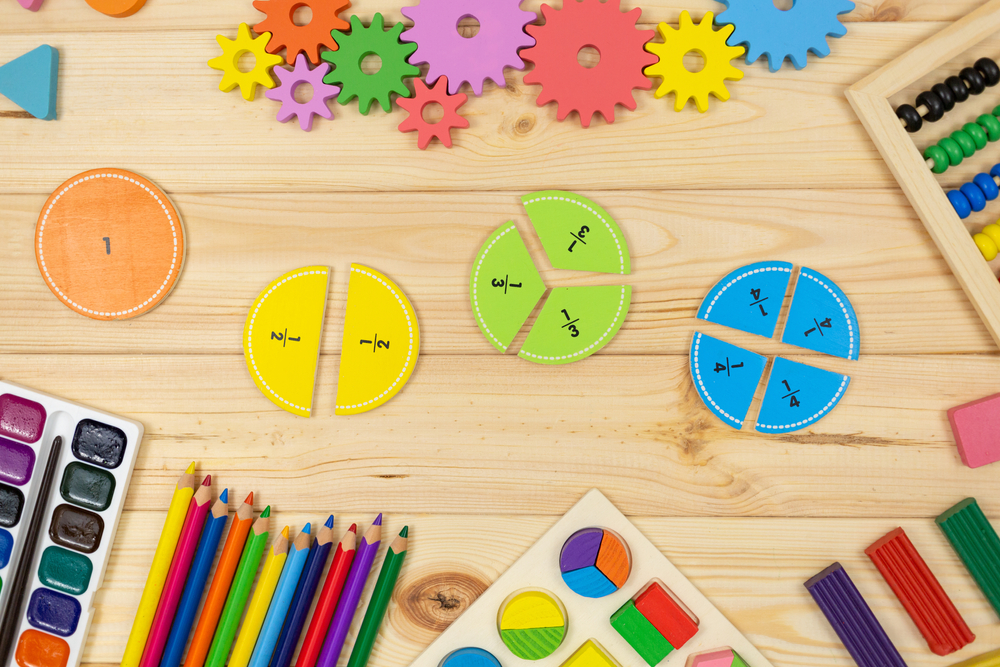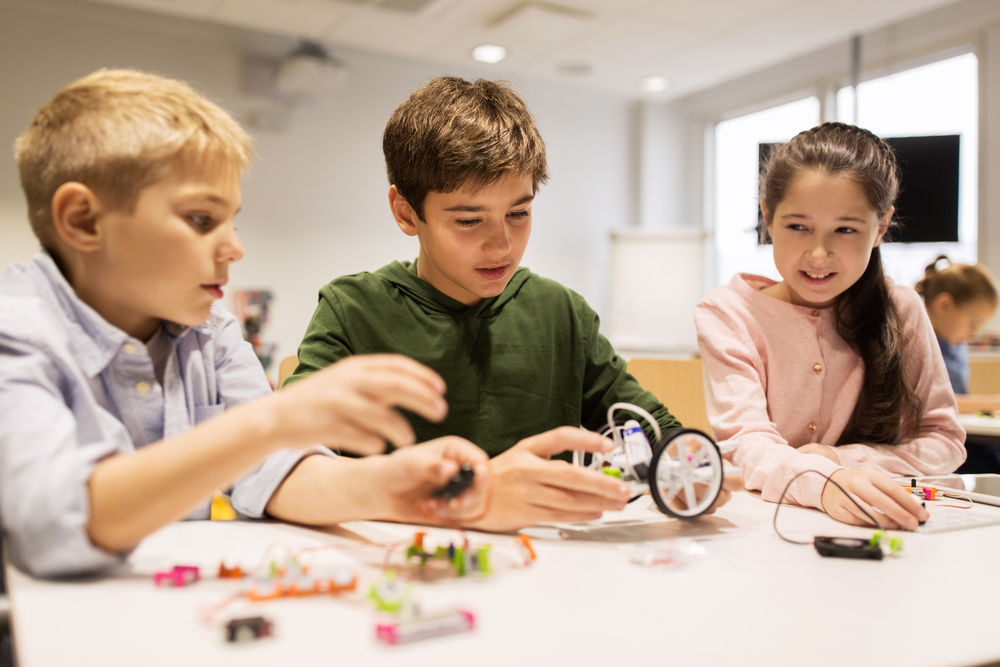Poems worksheets activities for Ages 3-6
8 filtered results
-
From - To
Discover engaging poems worksheets designed for children aged 3-6 at Kids Academy! Our fun and educational activities help ignite a love for poetry while enhancing language skills, imagination, and creativity. Each worksheet features playful illustrations and interactive exercises that keep young learners excited and focused. Perfect for home or classroom use, these age-appropriate poems cover a variety of themes and concepts, making learning enjoyable. Encourage little ones to explore rhythm, rhyme, and storytelling through these delightful worksheets, fostering an early appreciation for literature. Start nurturing a passion for poetry today with our carefully crafted resources tailored to your child's developmental needs!
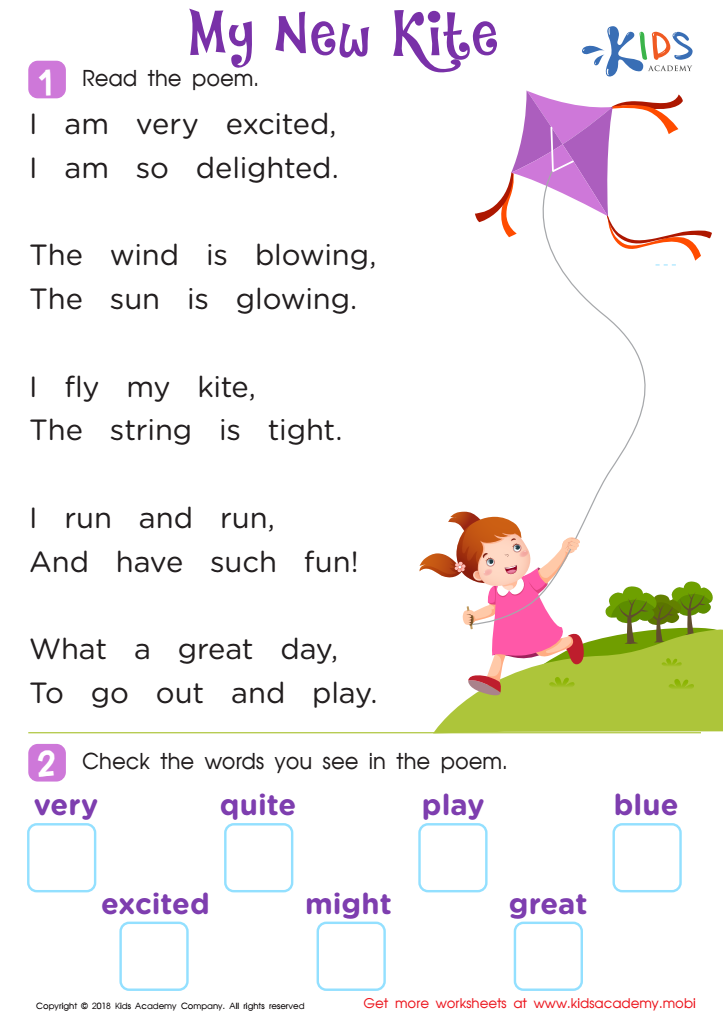

Poem: My New Kite Worksheet


Baa Baa Black Sheep Printable
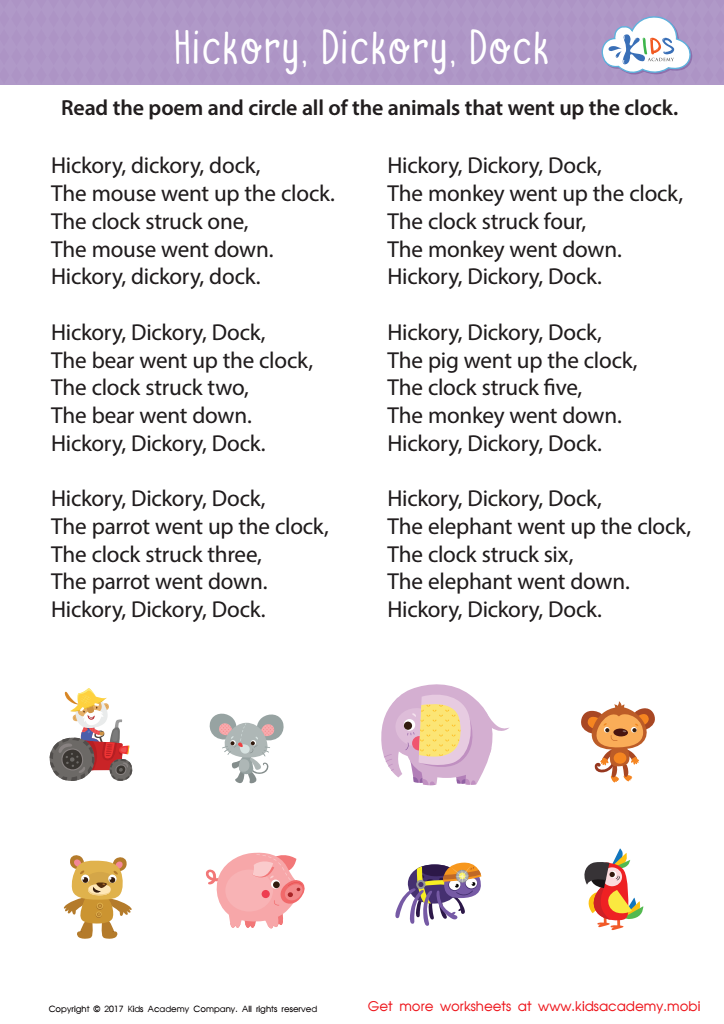

Hickory Dickory Dock Sequencing Worksheet
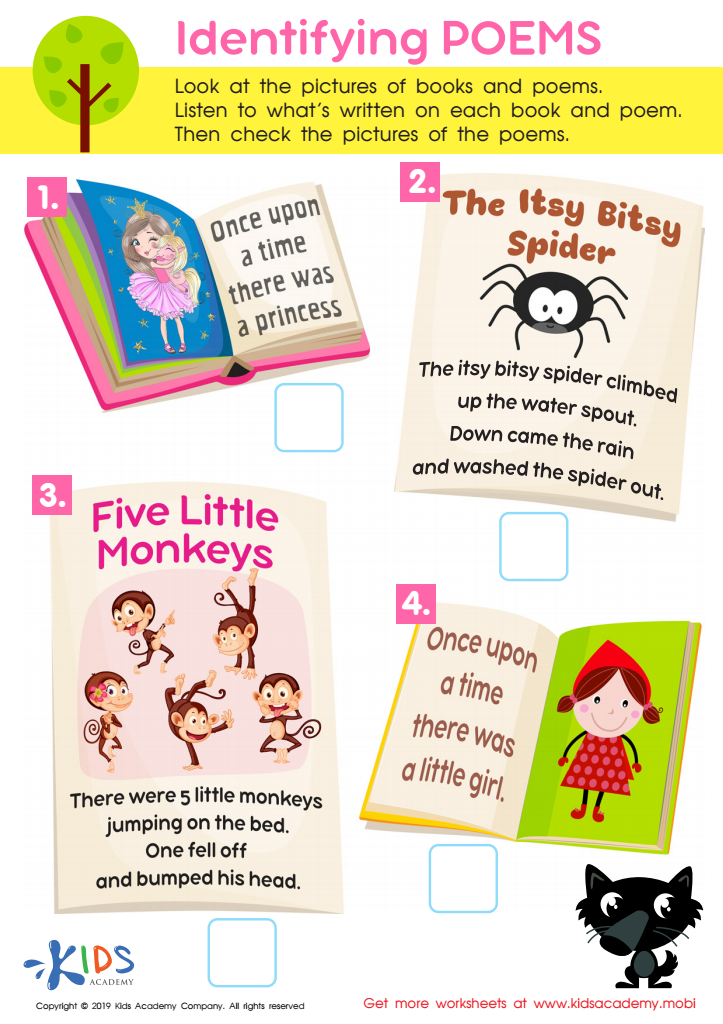

Identifying Poems Worksheet
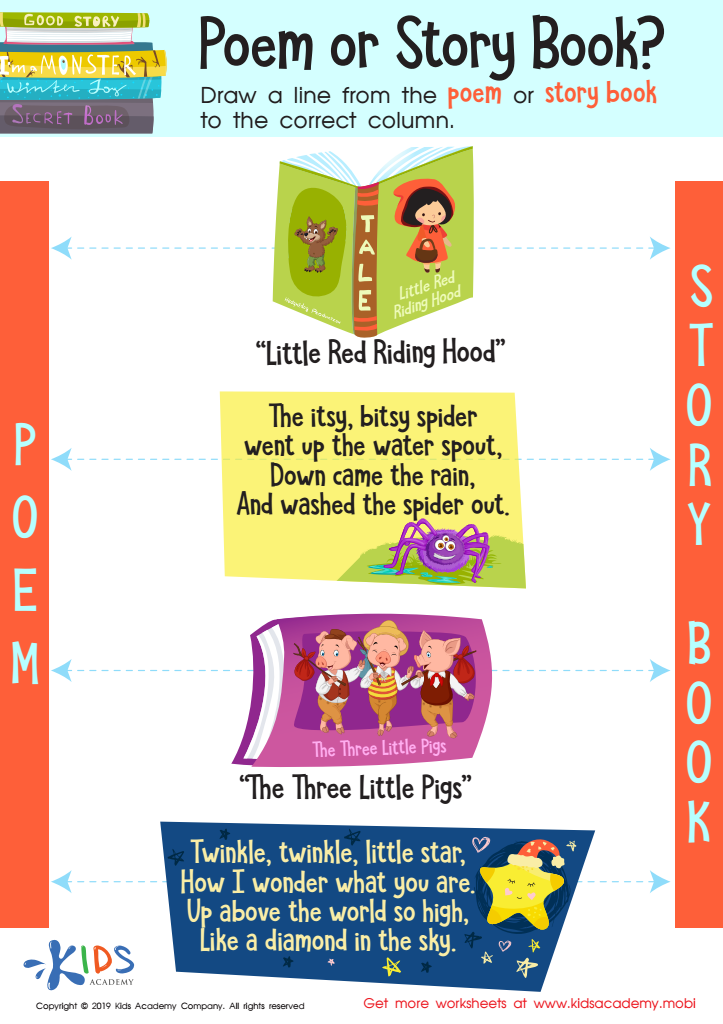

Poem or Story Book? Worksheet
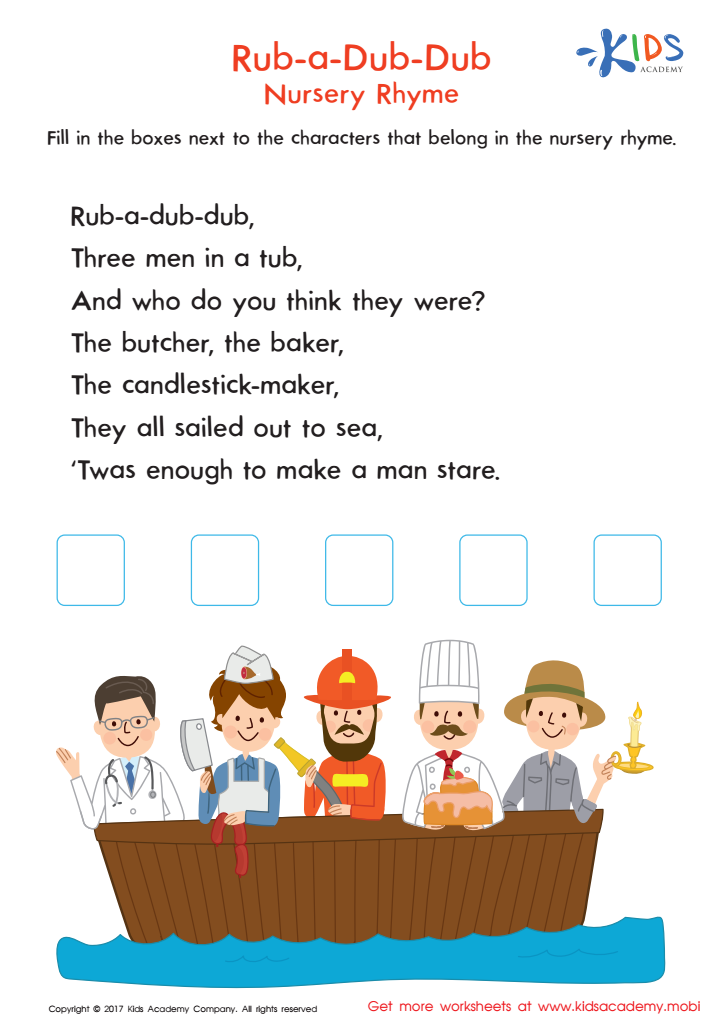

Rub a Dub Dub Printable
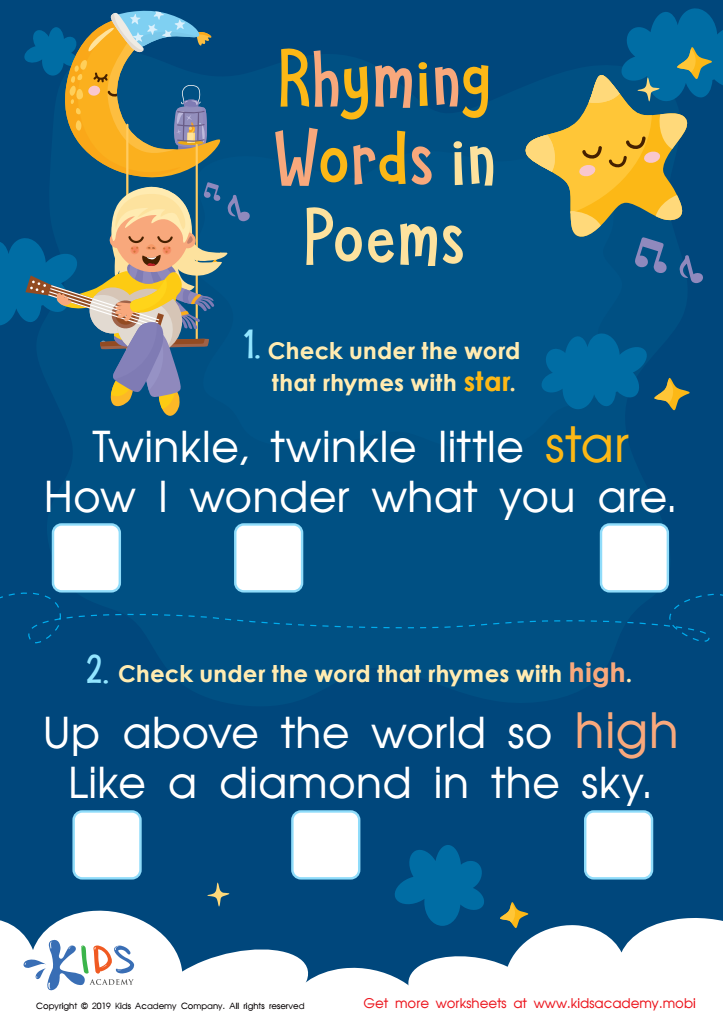

Rhyming Words in Poems Worksheet
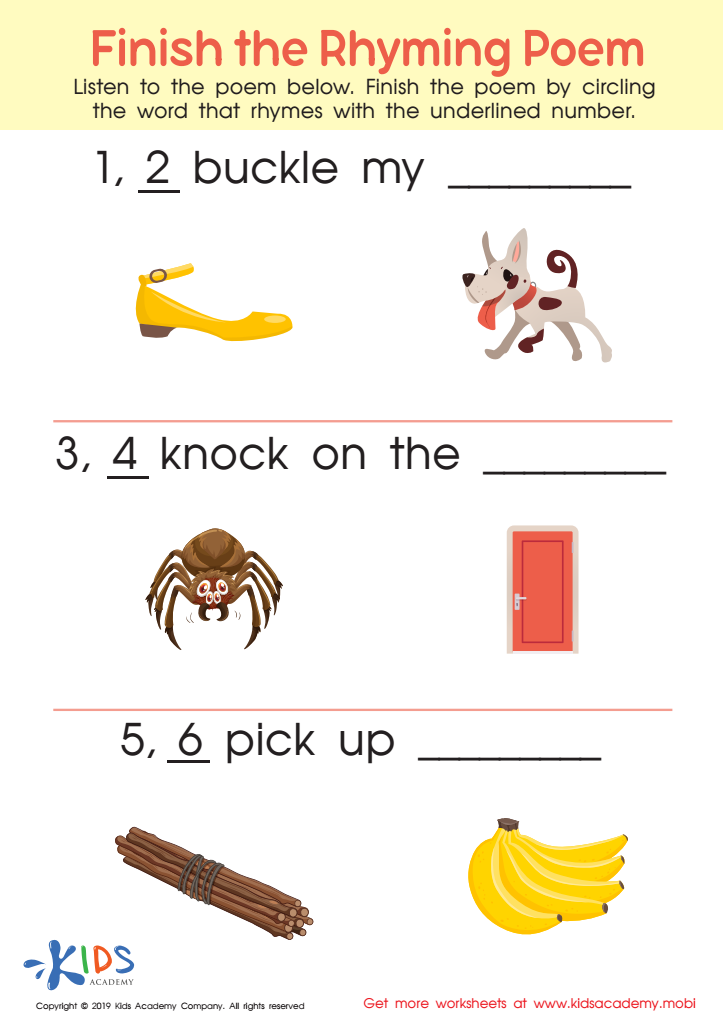

Finish Rhyming Poem Worksheet
Poetry activities for children aged 3-6 are paramount for their cognitive and emotional development. Engaging with poetry introduces young learners to the rhythmic patterns and musicality of language, enhancing their phonemic awareness—a crucial skill for later reading abilities. Exposure to diverse vocabulary within poems helps expand their language skills, fostering both comprehension and expression.
Furthermore, poetry often touches on themes of emotion, nature, and relationships, encouraging children to express their feelings and connect with the world around them. Through activities like reading poems aloud, creating their own simple verses, or even participating in rhyming games, children develop critical listening and speaking skills while building self-confidence in their communication.
Additionally, poetry nurtures creativity and imagination, inviting children to think beyond the literal and explore the possibilities of language. This not only fosters a love for literature but also sharpens their cognitive skills, such as critical thinking and problem-solving.
For parents and teachers, integrating poetry activities into learning routines cultivates a richer educational environment, supporting holistic development that encompasses cognitive, emotional, and social growth, making it an essential component of early childhood education.
 Assign to My Students
Assign to My Students


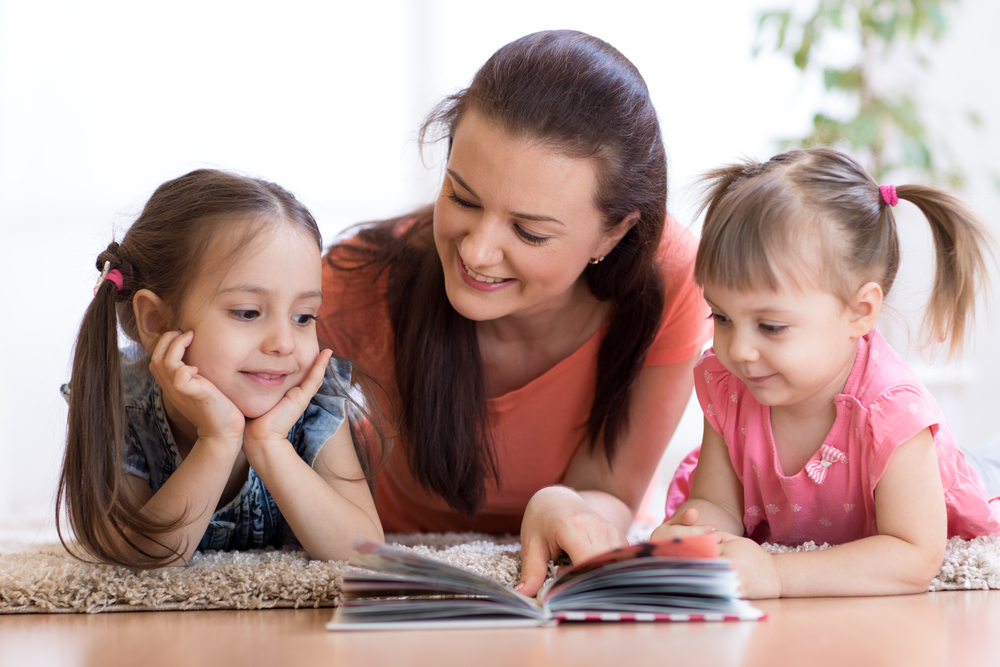

.jpg)
